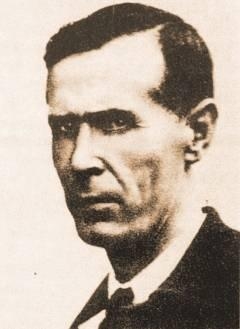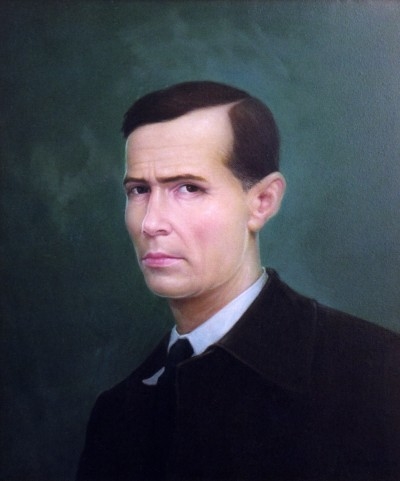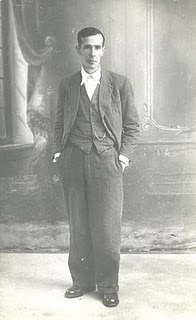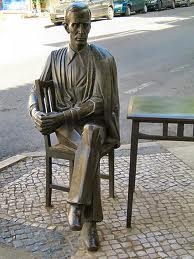Lynne Booker January 2013
When Peter and I asked a number of Portuguese and expatriates to name some famous Algarveans we were met with an empty silence. Eventually a few people came up with the current president , Cavaco Silva and a few others spoke of Manuel Teixeira Gomes. Some, half remembered the energy and achievement of Salazar´s whirlwind Minister for Public Works, Duarte Pacheco. The person who inspired the fondest memories here in Portugal was the poet António Aleixo. The power of his verse is apparent even in translation.
António Aleixo.



Famous for his irony and social criticism, Aleixo wrote a book, Este Livro Que Vos Deixo (This Book that I Leave to You), published in 1969 in two volumes which was at the top of the bestseller list in this country for two weeks. It struck a chord with a highly policed society, unable to protest frontally under Salazar´s dictatorship.
Aleixo is honoured in both Vila Real de Santa António and Loulé. He was born on 18 February 1899 in Vila Real and his father was originally from Loulé and had moved to Vila Real to find work in a textile factory. The family returned to Loulé when António was seven. His father was poor and drank and António vowed that he would never drink, a vow which he kept. He married young and had fourteen children. With the size of the family and the lack of work it is no surprise that he had difficulty supporting his family.

He joined the army and served in Tavira where he was promoted to cabo (corporal). He entertained the officers with his fado à desgarrada, often being paid with a free meal. He joined the police (PSP) but resigned because he could not bring himself either to fine or arrest anybody. He went back to his old job in a textile factory but it was heavy work and he damaged his stomach. He tried his hand as a goatherd (to benefit from goat´s milk) and then emigrated to France where he worked as a builder´s labourer. Whilst he was in France he worked as an itinerant fadista sending money home to his wife who banked it in Loulé. During the economic crash of 1929 -1931 his savings disappeared and he returned to the Algarve.
The popularity Aleixo achieved was in the fairgrounds and markets of the Algarve and the Baixo Alentejo. He sang fado, played the guitar and recited his poetry which he also sold in pamphlets. He earned his living by selling lottery tickets. He entered Jogos Florais which were competitions of poetry and singing and he sometimes won, although he had to borrow clothes to appear in the competitions.
By this time, Aleixo was ill with tuberculosis. He was operated on in Lisbon and spent some time in a sanatorium in Coimbra before he had to leave to continue to try to support his family. He left Coimbra in May 1949 and died six months later, without money, food or medicine.
One of the greatest accolades that Aleixo achieved was the dedication written for him by Miguel Torga, another major author of the Salazar years. This gift was most surprising to contemporaries, because they knew Torga as a crusty soul and were well aware that he would not give his dedications to anyone.
What I love about Aleixo´s work is his use of irony, his self-deprecation and his humanity. Most of his poetry is written in simple four line verse:
I know I look like a thief
But there are many whom I know
Who without appearing to be
Are that which I seem
I was a policeman, I was a soldier
I was an outcast
I sell lottery tickets, I look after goats
The only thing I am not is a thief
This next verse was written about his life in France. It was almost certainy also true of the majority of Portuguese living in France.
I was wounded to the heart
To think I live my life
In a house built
Of planks and cardboard
This next verse tells of his excitement at winning a tone of the poetry competition, one of the jogos florais
King yesterday, today dethroned
Here I am again walking the street
I gave the clothes back to their owner
And the misery goes on
If, when I ask, I ask singing
People take more notice this way
Because if I ask weeping
Nobody takes pity on me
This last verse was written by Aleixo during his last year to be used on his gravestone. He was certainly not rich enough to buy a gravestone, and we are not aware of any grave dedicated to this poet hero of the Algarve.
A man daydreams
And as he dreams his life passes
And he wakes from this golden dream
Only when he dies
